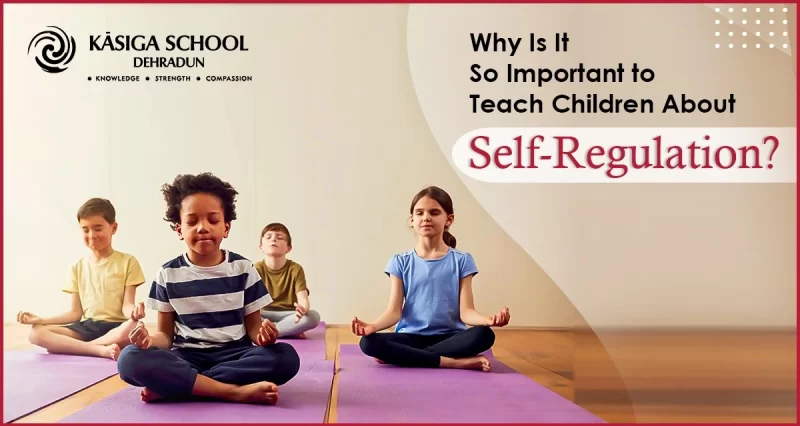Almost all children are prone to tantrums and parents become accustomed to it during their child’s development. While throwing tantrums is acceptable in exceptional cases, the difficulty begins when it becomes a habit, which is when self-regulation ideals come into play.
Self-regulation refers to the capacity to govern one’s own behavior and emotions in response to the demands of certain conditions. It is about the capacity to resist strong emotional reactions to disturbing stimuli, to calm down when agitated, to adjust to changes in expectations, and to deal with disappointments without retaliating violently.
At Kasiga School, we think that self-regulation is a set of fundamental life skills that allow students to regulate their behavior toward reaching a goal regardless of the uncertainty and unexpectedness that may arise along the way.
We think that for a kid to develop fully, a complete set of skills is required, and one of the first to be taught is the concept of self-regulation.
According to Daniel Goldstein, a well-known American psychologist, “Self-discipline is something, like a muscle.” “The more you exercise it, the stronger it becomes.”
Self-regulation must be established in children, and it should begin early on. Here are some reasons why teaching children self-regulation is important.
Helps You Cope with Life’s Difficulties
As a child grows older, he or she will encounter a variety of unpleasant situations, and it is crucial that he or she does not succumb to the pressures and break under them.
When you educate your children on the principles of self-regulation, they will be better able to understand their needs and make the necessary modifications to deal with the circumstances at hand.
We’ve seen that children who are taught the value of self-regulation at an early age are better able to deal with the stressors of daily life.
Helps To Make Better Life Decisions
An individual who learns self-regulation consistently makes better life decisions. He/she understands that even things that appear or feel nice for a short period of time may not be so wonderful in the long run, therefore abstaining is frequently the better option rather than giving in.
Thus by instilling the principle of self-regulation in the child, you assist him or her make better judgments in life.
Less Prone To Develop Addiction
As you are aware, the number of youngsters being addicted to drugs, life-threatening games, or other risky activities is increasing by the day, and the unfortunate reality is that the majority of addictions are caused by social pressure.
Thus it is our obligation to teach a child that addiction is not trendy or fashionable, and that it should not be used to get out of unpleasant situations in life. A youngster who understands the concept of self-regulation will never develop an addiction, regardless of the situation.
Better Academic Performance
As parents and mentors, we all want our children to achieve academically and pass with flying colors. However, youngsters are inherently restless, and they are more likely to answer the call of the playground rather than settle down for hours with their books.
Thus it is crucial to teach young minds the need to separate study and play hours, and it is up to them to self-motivate themselves not to allow their minds to wander to fun and games when studying.
The Bottom Line
At the Kasiga School, we think that teaching self-regulation is something that should be done on a regular basis and not just at home.
As one of the country’s leading institutions and one of the best CBSE schools in Dehradun, we believe that both we and the parents must work together to teach these important life skills to the students and help them succeed in their lives.


